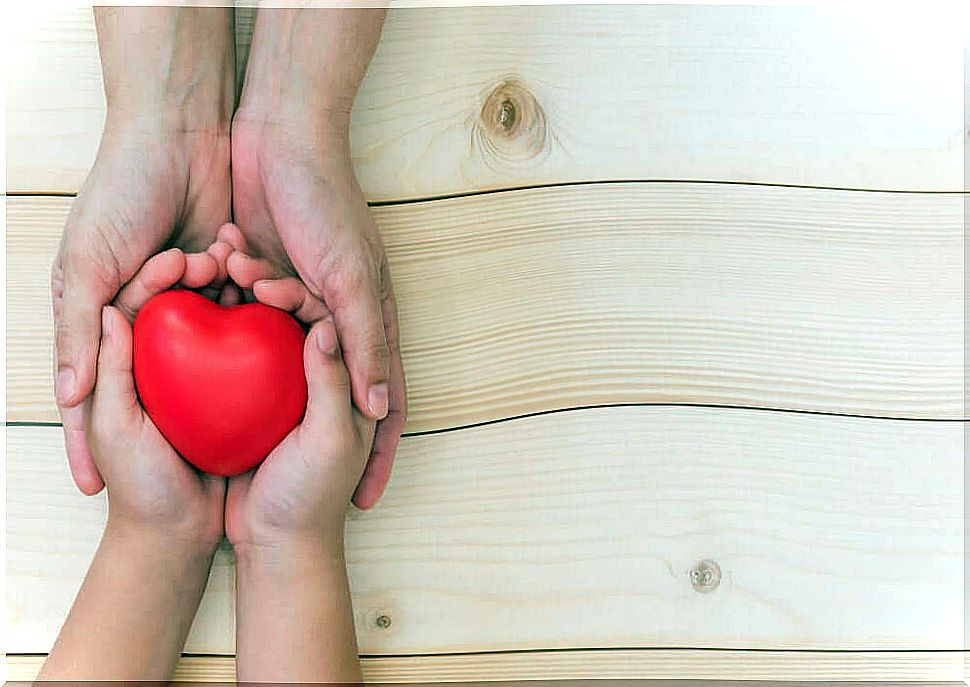The Recognition Value

Recognition has great value for human beings and is a very important part of their training, more precisely for their contribution to well-being. As we live in society, we expect the recognition of the other as a reference (source of information) and reinforcement of our way of acting, thinking or putting ourselves (attitude) in a situation.
Precisely, in the constitution of a person, the other conditions the image that he forms of himself, especially in the first years of life. In addition to needing encouragement, the child needs to feel protected against the difficulties of life, with love, affection and respect.
In this way, your psyche is shaped in a healthy way, both short and long term. The external environment will be an essential regulator of their wants and needs, an ecosystem to which they will have to adapt to survive in society.
As we see, the other plays an essential role in the different stages of life. At birth, parents or guardians play a key role. As we move on to the later stages, the circle of influence widens so that we never cease to be sensitive to the actions of others. Furthermore, within what others give or take away, we can place recognition, which in many cases acts as a reinforcer of behaviors and the idea we have of ourselves.

What is the value of recognition?
The great value of recognition is given by the following advantages it has:
- Enables a healthy development of self-esteem
Recognition, as it influences our self-concept, influences how we feel about ourselves (self-esteem). A self-esteem that, as a faithful follower, will be a continuous reference, accompanying us everywhere.
It is necessary to remember that emotions are energy. Thus, the good health of our faithful companion (self-esteem) will determine the choice of projects and the attitude with which we will embark on them.
- Strengthens social relationships
Recognition strengthens social relationships. Whether on a personal or professional level, the person who is recognized will feel empowered.
- Improves the level of personal satisfaction
Definitely, the level of personal satisfaction improves substantially when there is recognition, especially when we talk about work and attitude.
- Destructive self-criticism diminishes
Demanding people can find themselves trapped by their own critical thoughts if their work goes unrecognized. Therefore, recognition is essential to prevent a negative dialogue that involves mistreatment of the self.
- Boosts self-confidence
When a person has external recognition, he can better build his self-esteem and strengthen his own confidence. Self-assurance will increase courage in the face of new situations that must be faced daily.

What happens when the person doesn’t get recognition?
Recognition of others is extremely important for the constitution of our I (self). An example of this is learning the culture when we are born; it starts from the relational dynamic that is built with the other.
In this sense, the bond generated and maintained with caregivers will be essential for healthy development. From his desires and needs, the individual initiates the dynamic relationship that exists between the Self and the outside. In this way, it will begin to regulate itself and be able to shape, a posteriori , what Sigmund Freud established as the Principle of Reality in Beyond the Principle of Pleasure , a 1920 book.
Thus, Freud’s postulate refers to the fact that psychic processes are automatically regulated by the Pleasure Principle. Then an unpleasant tension is triggered, which has the final result of decreasing it in order to avoid displeasure (understanding displeasure as lack of recognition).
Conclusion on the value of recognition
In short, to live in society in an adapted way, we need good impulse control. In this way, the individual does not renounce his desires, but postpones or sublimates them, in order to satisfy them when the time is right.
When we do not get recognition from others, self-esteem can be harmed, causing discomfort in the individual. Furthermore, the influence of reinforcement is especially powerful in childhood, and it is possible to use it as a very powerful tool to educate without punishment.
In short, knowing that there is someone who can recognize our existence or our work in a positive way reinforces the best parts of our self. In addition, it increases the likelihood that we will repeat behaviors for which we were reinforced.









